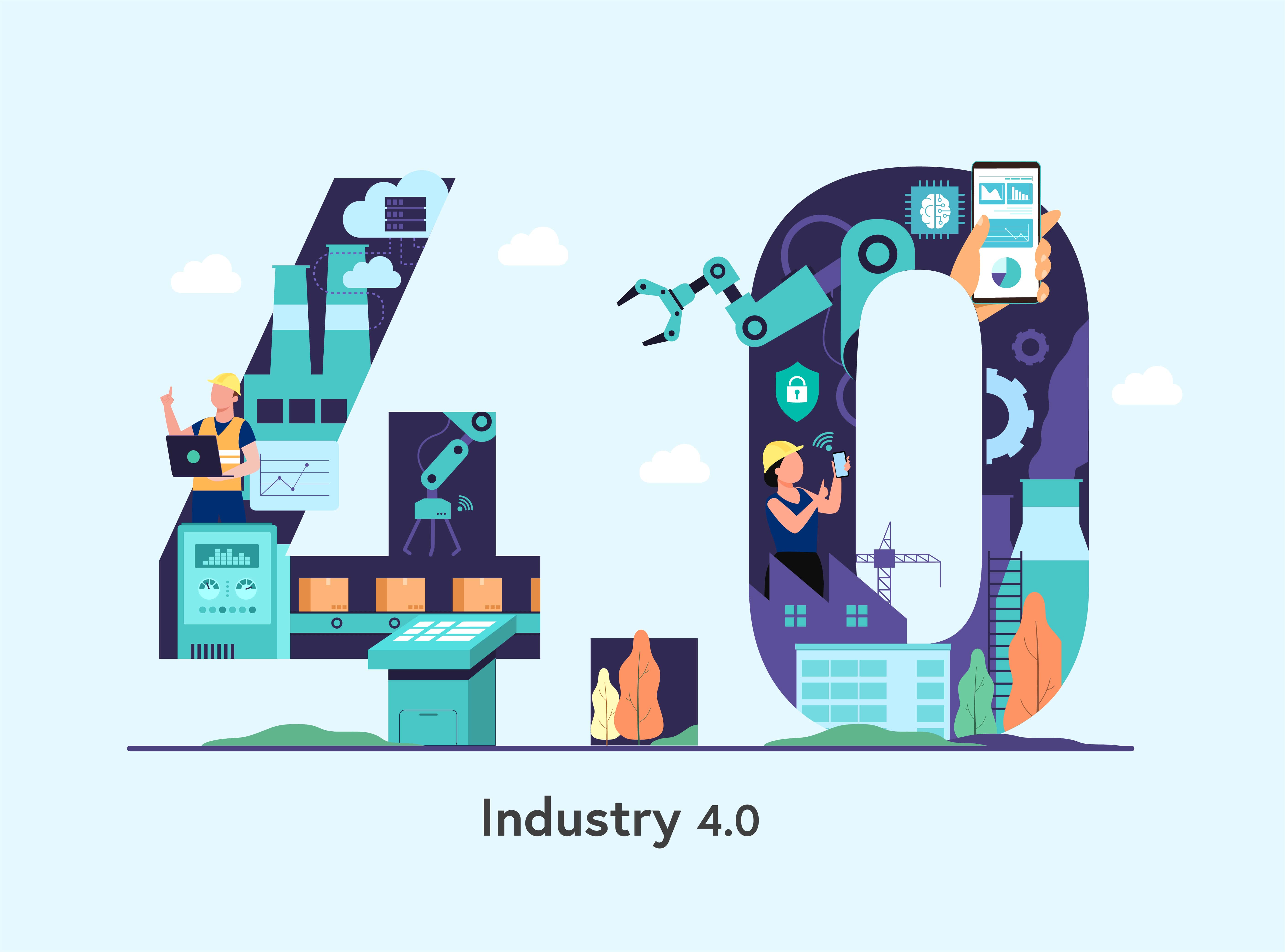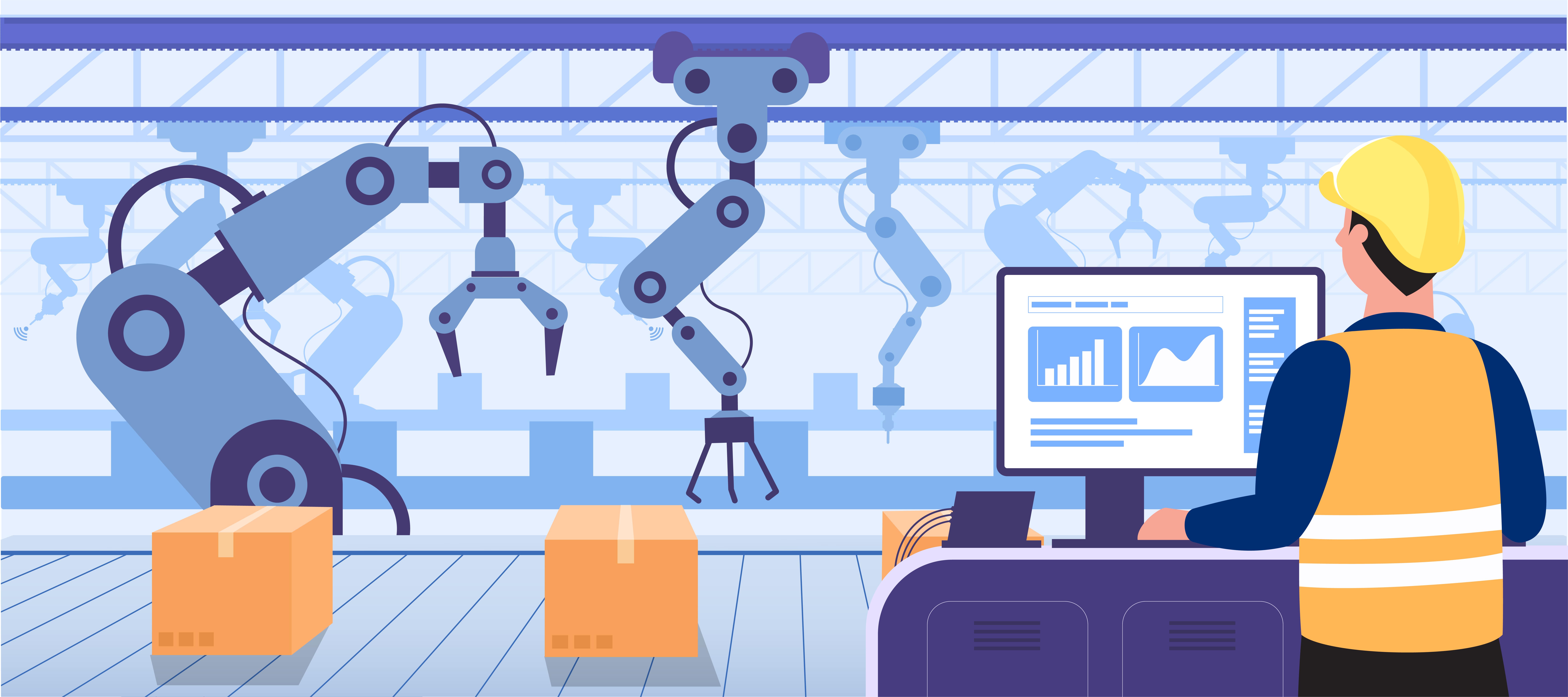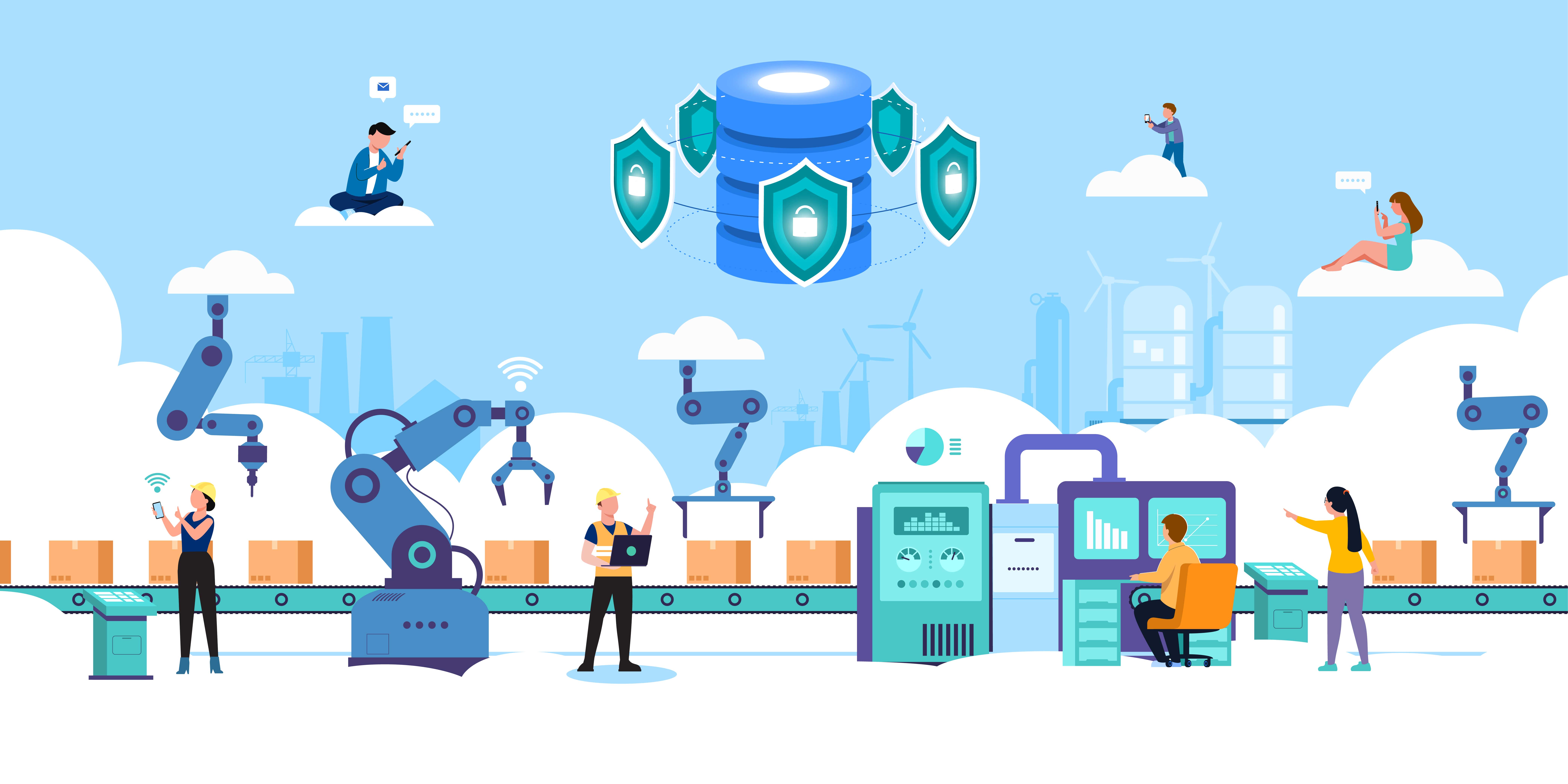What is Industry 4.0?
Industry 4.0 is the name of the industry-technology integration, which was started to be prepared and implemented years ago in developed countries. After important industrial revolutions in the production sector, countries had to keep up with these global changes and had to developed some strategies in an increasingly competitive environment. Industry 4.0, is one of these strategies.

We can say that Industry 4.0 basically aims to bring together Information Technologies and Industry. It consists of two basic components; The first is New Generation Software and Hardware. In short, it is hardware that uses less electricity than today, has a low cost, takes up less space, produces less heat, but works just as reliably, and is efficient operating systems in terms of resource and memory usage to run these hardware. The second is; It is the Internet of Things, which we often hear. It is an internet-based smart electronic system in which data is exchanged independently of people with sensors and operators integrated into all devices on earth. As a result of these two items, 'Smart Factories' or 'Dark Factories', which continue to work and produce in the most appropriate way by evaluating the situation in the factories and re-optimizing by themselves, come to light. As a result of this situation, it is thought that the production cost and the energy needed will decrease, and the production amount and product quality will increase.
What are the Effects?
We always see the industrial revolution phenomenon when we look at the history of a job. Throughout humanity, because the people must produce and announce the products, transportation and communication improved and new information technologies appeared in the time. Industry 4.0 will certainly have provide the new sectors and the jobs, however, it will cause extinction in sectors that cannot keep up with this situation. This case is valid for people, countries and companies, too. If we look at the past, we see that there is a situation where the masters who used to work with their own labor, then the technicians and now the engineers are losing their jobs. But besides these negatives, of course there are positives. Although some occupational groups are coming to an end, new occupational groups will emerge and employment will be in question. Another plus is that low-cost, low-energy smart products that are produced in Smart Factories come into our lives and make our lives easier. Today, thanks to 3D Printers, the same person who produces and consumes a simple product is another positive aspect that is imagined.
Industrial Revolutions throughout History
- Production of production benches in order to use water and steam power efficiently.
- Henry Ford's production line design and the use of electricity in the production stages.
- Electronic and mechanical technology production line being replaced by programmable devices (1970s)
- Industry 4.0 is an industrial strategy that is thought to have started the 4th Industrial revolution.

Challenges Encountered and Results
While Industry 4.0 is being implemented, it is foreseen that there will be no problems in the field of hardware and software at the first stage. In addition, with Internet Protocol 6 (IPv6), billions of devices are already ready to connect to the Internet. However, it will not be easy to adapt and program all the machines to be used in the production process in accordance with Industry 4.0 standards. Some of the subjects on which Industry 4.0 is based are already included in the subjects of Industry 3.0. What is expected from Industry 4.0 is that all of these technologies work in full integration with each other. Even now, devices in many factories cannot talk to each other. Devices of different brands use different communication protocols and this makes integration seriously difficult.

If we write down the problems with a few items;
- Disagreements between risk-averse companies and their stakeholders.
- The cost of the change and an additional cost if a problem is encountered.
- The need to find solutions to problems such as the need to preserve the integrity of the production process.
However, the possibility that concepts such as industry 5.0, 6.0 may also be included in the future processes, contains the idea that the current problems can certainly be solved.